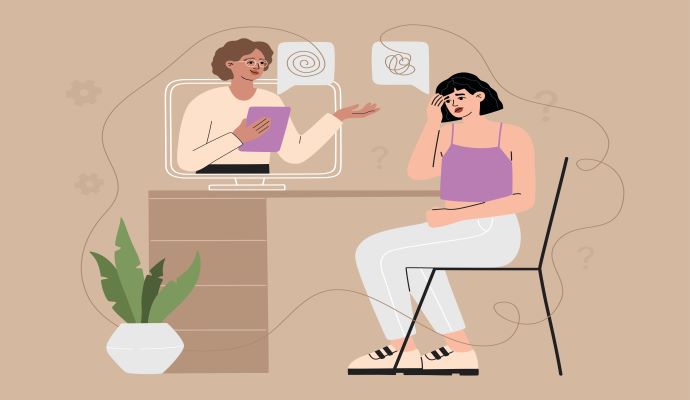In the past few years, the world has been bombarded by multiple calamities. Just when we thought that the COVID-19 pandemic was over, news of economic meltdowns and warring countries started popping up.
First, Russia invaded Ukraine. And then just recently, the Israel-Palestine war broke out. All of these incidents have impacted our mental health in one form or another. It is no wonder mental illnesses like anxiety and depression are on the rise.
In the face of all these disasters, there’s one sector that’s been gradually evolving. I’m talking about telemental health, more popularly known as online mental health. While some regions have embraced this service with open arms, others are a bit reluctant to seek psychiatric help online; understandably so.
If you’re on the fence about telemental health, this article will shed more light. You will learn what it is, and the potential benefits. Let’s dig in:
Getting the Facts Right
Before I dive into the science behind it, it’s important to define exactly what it means. Telemental health or telepsychiatry entails leveraging technology to deliver mental health support. It’s a subset of telemedicine aimed at helping individuals living with mental disorders.
The biggest concern that a lot of patients have is whether this online therapy approach works. This concern is valid if you consider how traditional therapy works.
With the latter, a psychiatrist or therapist observes an individual’s body language, tone of voice, facial expressions and overall behavior. Doing so helps them provide an accurate assessment and diagnosis.
And when it comes to treatment, traditional therapists are able to offer help by maintaining close relationships with their patients. This begs the question, can digital communication tools be effective as one-on-one therapy sessions? Interestingly, research shows that they are indeed effective. Here are a couple of studies that prove this:
- In 2014, a study published in the Journal of Affective Disorders revealed that online treatment was equally effective at treating depression as face-to-face intervention
- In 2018, researchers conducted a similar study to determine the efficiency of online cognitive behavioral therapy. The study, which was published in the Journal of Psychological Disorders, proved that the online approach worked perfectly in the treatment of panic disorder, social anxiety disorder and depression.
Benefits of Telepsychiatry
We’ve established that telepsychiatry works just as well as face-to-face therapy or medication management. But why would one resort to this online treatment approach? Well, here are some of the benefits you stand to gain:
Ideal for People in Remote Areas

With telepsychiatry, even people living in remote areas can access crucial mental health care. You don’t have to worry about driving thousands of miles to receive this care and support. All you need is an electronic device, a stable internet connection and you’re good to go!
More Approachable
There’s no doubt that we’ve come a long way in destigmatizing mental health. However, we still have a couple of miles to cover on the destigmatization journey.
The truth is, not everyone feels comfortable disclosing their mental illness to friends and family. And that’s where telemental health comes in handy. With online therapy, you can get the help you need without ever revealing it to anyone.
More Affordable
Online mental health services are cheaper than the traditional face-to-face services; and rightly so. With the traditional approach, the mental health expert incurs overhead costs like rent (for their space), utility and more.
Conversely, e-therapy eliminates these costs as the professional can offer their services from the comfort of their home. Thanks to this, telepsychiatrists offer more affordable services.
Conclusion
Hopefully, this article has enlightened you on telemental health. Even if you choose a different treatment path, at least you know the benefits of online therapy services. And you can switch to telepsychiatry anytime you deem fit. “And this is my prayer: that your love may abound more and more in knowledge and depth of insight” (Philippians 3:9)







